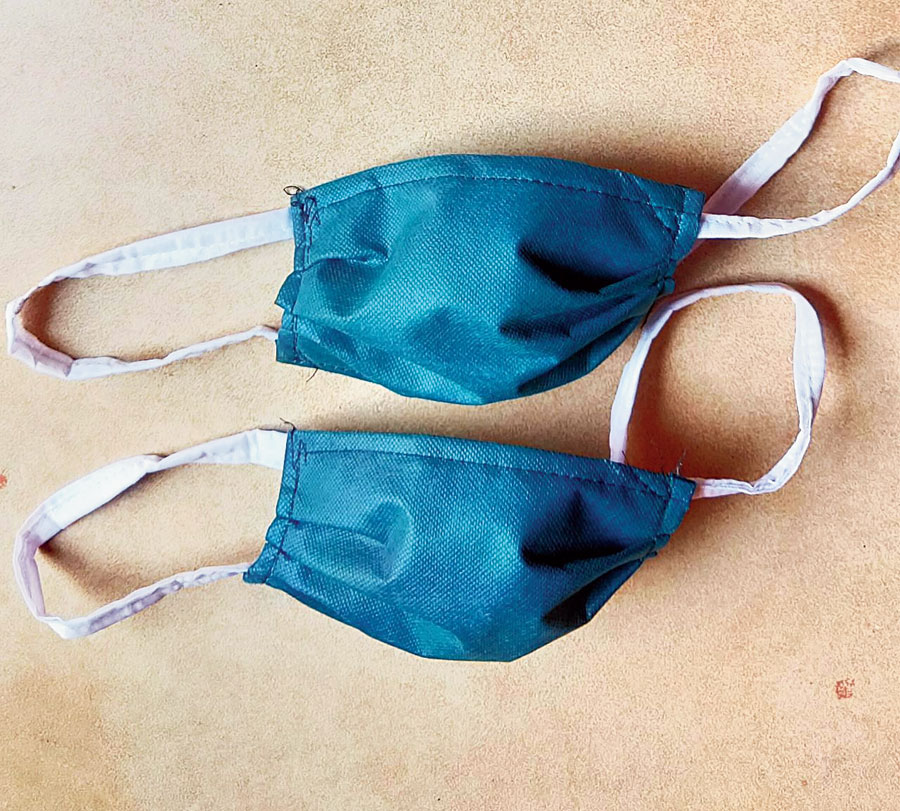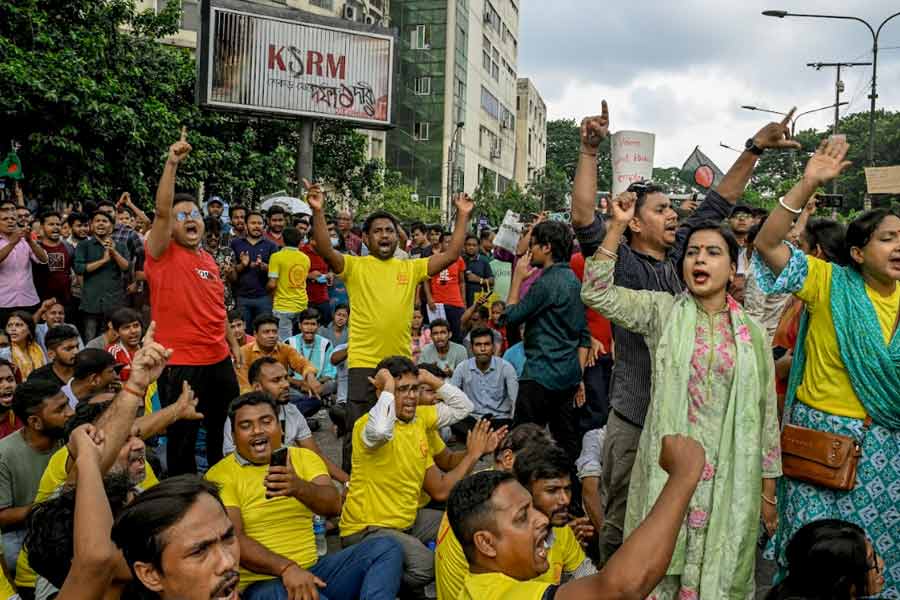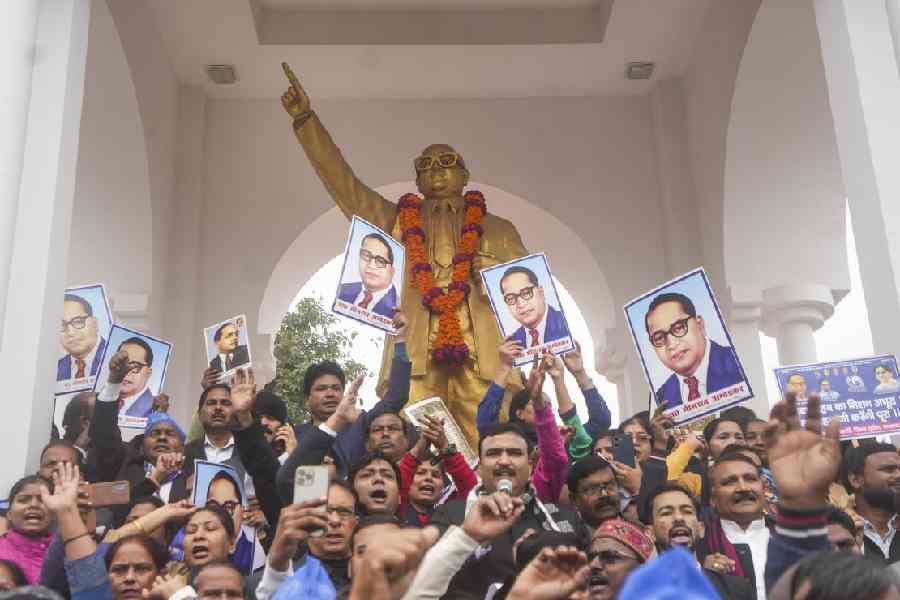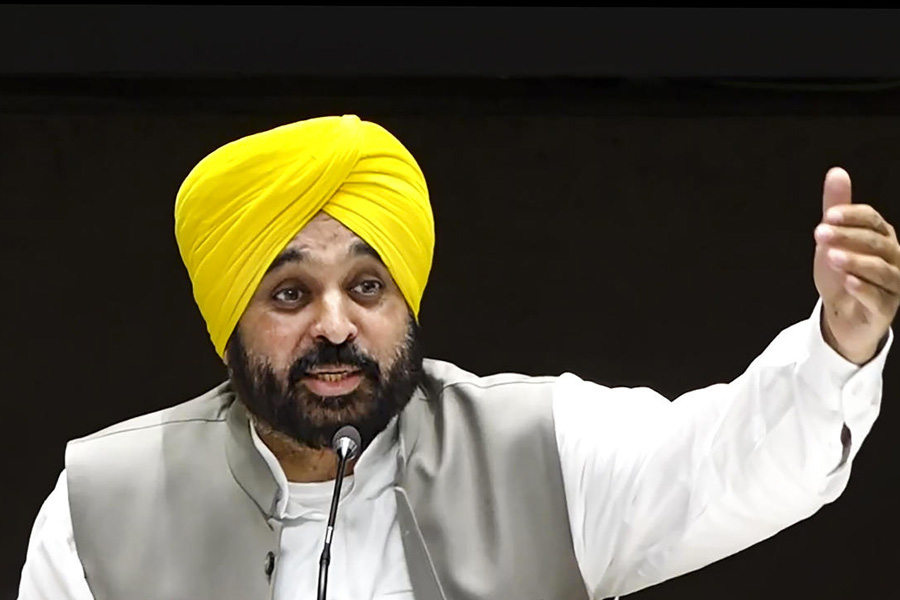Teachers, students and researchers at Jadavpur and Calcutta universities have gone on an overdrive to produce masks at a time the Bengal government has made it mandatory to cover one’s face before stepping out.
The Telegraph takes stock of the drive on the two campuses.
Jadavpur University
At Jadavpur University, teachers and researchers have developed a three-layer washable mask from low-cost, easily available materials.
Through a platform called “People’s Initiative for Technology”, 500 masks are being produced daily with the help of tailors in the area.
A professor of mechanical engineering, who is supervising the process, said the masks are being made using materials available at homes.
Of the three layers of a mask, the two outer layers are made of polypropylene fabric. This type of fabric is used to make the carry bags that have been introduced to replace the plastic ones.
“One can easily procure such materials,” said Swarnendu Sen, the teacher who is overseeing the project.
Hindol Majumder, a research scholar, said the inner layer is of cotton. “The outer layer material is of hydrophobic nature that repels water. The inner layer is hydrophilic, which soaks the water coming up to this layer,” he said.
The university on its website www.jad.univ.edu.in has uploaded a video link, describing the procedure to prepare masks.
How effective are the masks? Chiranjeeb Bhattacharya, a professor of chemical engineering, said droplets generated from sneeze or cough have been simulated through sprinkling of water from a close distance to test the efficacy. “The sprinkled droplets crossed the first polypropylene layer but were absorbed by the cotton layer. The second polypropylene layer is not getting wet by the droplets,” he said.
“Once bulk production starts, the university will make the masks available to the underprivileged for free,” said vice-chancellor Suranjan Das.
Calcutta University
The jute and fibre technology department of Calcutta University, too, is making three-layer masks.
“Our faculty members of the department are producing masks as there is a shortage of those in the market,” said vice-chancellor Sonali Chakravarti Banerjee.
Two layers of cotton and a thin layer of polyester are being used in the masks, which will be washable.
The items are being given to the state government for free for distribution among the people, she said.











